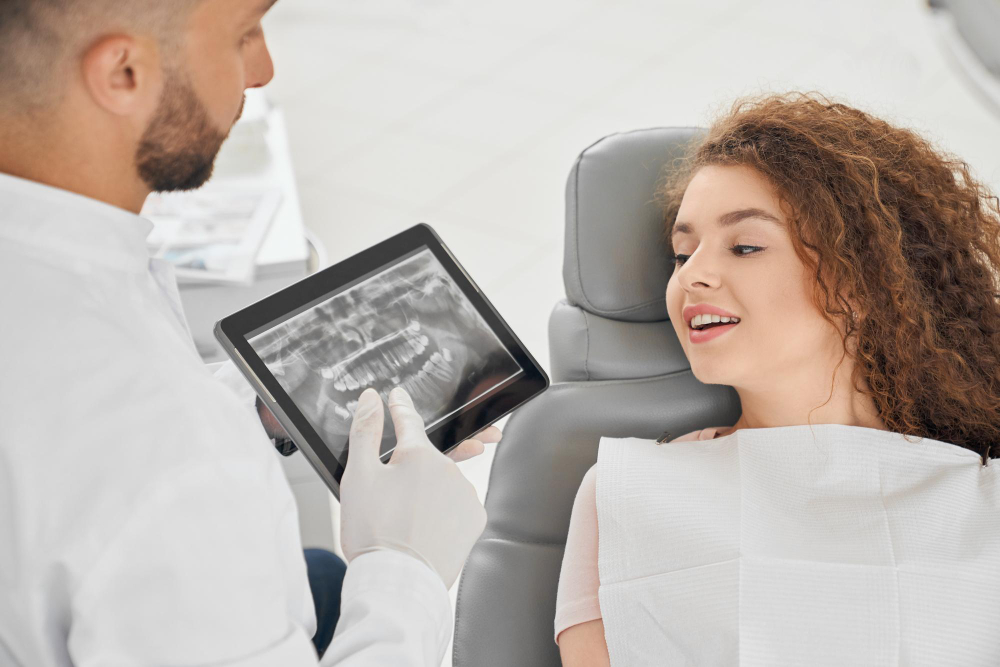The “All-on-4” dental technology represents a cutting-edge and sophisticated approach to restoring a complete set of teeth through the use of dental implants. This method is specifically crafted to offer a stable and permanent solution for individuals experiencing substantial tooth loss or facing the prospect of complete tooth loss. The fundamental concept of “All-on-4” entails the strategic placement of four dental implants to support a full set of prosthetic teeth within a single dental arch, whether upper or lower.
Benefits of “All-on-4” dental technology:
Immediate Functionality. A notable advantage of All-on-4 dental implants is the potential for attaching a temporary or even permanent set of prosthetic teeth immediately after surgery. This allows patients to depart the dental office with a functional set of teeth on the same day as the implant placement, eliminating the need for removable dentures during the healing phase.
Aesthetics and Functionality. The prosthetic teeth affixed to the implants are designed to emulate the appearance and functionality of natural teeth. Customized to match the patient’s desired size, shape, and color, they result in a natural and appealing smile.
Improved Chewing and Speech. All-on-4 dental technology furnishes stable and robust support for prosthetic teeth, enabling patients to confidently chew a diverse range of foods. It also enhances speech and eliminates concerns about denture slippage, a common issue with traditional removable dentures.
Long-Term Solution. All-on-4 implants offer a resilient and enduring solution for tooth replacement. With proper care and maintenance, they can deliver functional and aesthetic benefits over many years.
Procedure Duration.
The duration of the All-on-4 dental implant procedure can fluctuate based on factors such as the patient’s individual case, the treatment’s complexity, and the dentist’s chosen approach.
Cost Considerations.
The cost of the All-on-4 dental implant procedure varies widely based on factors like the dental practice’s location, the expertise of the dental team, materials used, case complexity, and the need for additional treatments like extractions or bone grafts. Additionally, factors such as the type of prosthetic teeth and follow-up appointments can also influence the overall cost. Therefore, an accurate estimate can only be determined after a dental consultation.





